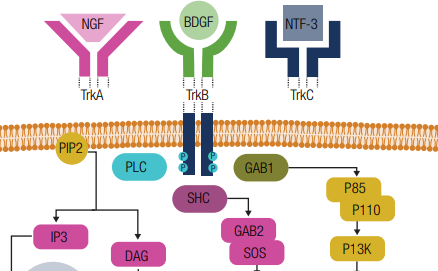Prof. Frédérique Penault-Llorca
Pathologist
- University of Clermont-Ferrand
France
Frédérique PENAULT-LLORCA, MD, PhD, graduated as a medical specialist in pathology in 1993 and in oncology in 1995. Also, in 1995, she received a PhD from the Université d’Aix-Marseille II in cellular biology and microbiology, on the topic of HER2. Professor PENAULT-LLORCA is currently professor of Pathology at the University of Clermont-Ferrand, CEO of the Comprehensive Regional Cancer Institute Centre Jean PERRIN, deputy director of the research team INSERM 1240 IMoST, and head of the Molecular Biology Plateform at Centre Jean Perrin, Clermont-Ferrand, France, and Vice-President of UNICANCER GROUP. She chairs the Immuno- Oncology group at UNICANCER R&D. She is a member of several pathology and oncology societies (ESMO, ASCO, ECP, AIP, SFP. Her main areas of interest as a pathology being female cancers. Professor PENAULT-LLORCA has conducted various biomarkers-based research studies in breast, ovarian, colorectal, gastric, and lung cancer in relation to response to targeted therapies and immunotherapies. She also acts as a coordinating pathologist for various oncology trials. Professor PENAULT-LLORCA has written more than 440 peer-reviewed publications and several books on female cancers and biomarker testing methods and issues.
AbbVie, AstraZeneca, Bayer, BMS, Daiichi Sankyo, Genomic Health, Gilead, GSK, Lilly, Menarini /Stemline, MERCK, MSD, Myriad, NanoString Technologies, Novartis, Pfizer, Pierre-Fabre, Roche, Seagen, Servier, Tesaro; Institutional research grants from AbbVie, Agendia, AstraZeneca, Bayer, BMS, Genomic Health, MSD, Myriad, NanoString Technologies, Roche; Congress invitations from AbbVie, AstraZeneca, BMS, MSD, Novartis, Pfizer, Roche
Programmes developed by Prof. Frédérique Penault-Llorca
Perseverance in molecular testing in NSCLC pays off
Looking beyond the obvious mutations in non-small-cell lung cancer
Experts
Prof. Frédérique Penault-Llorca, Prof. Mark SocinskiNew Oral Endocrine Therapy Options for Patients with Advanced or Metastatic ER+ Breast Cancer
Episode 2: Optimisation of Treatment Selection & Sequencing Decisions in ER+/HER2- Advanced or Metastatic Breast Cancer
New Oral Endocrine Therapy Options for Patients with Advanced or Metastatic ER+ Breast Cancer
Episode 3: ESR1 Mutation: The Need for & Role of Testing in ER+/HER2- Advanced or Metastatic Breast Cancer
New Oral Endocrine Therapy Options for Patients with Advanced or Metastatic ER+ Breast Cancer
Episode 4: Panel Discussion and Summary
New Oral Endocrine Therapy Options for Patients with Advanced or Metastatic ER+ Breast Cancer
Episode 1: Overview of Clinical Data of SERDs & Their Place in Treatment Landscape
TRK fusion-positive cancer: new ESMO OncologyPRO learning resource


 Downloadable
Downloadable  26 MIN
26 MIN
 Mar 2024
Mar 2024 







